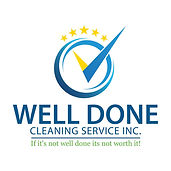Why Teamwork Matters in Professional Cleaning
- Zofia Miskiewicz

- Jul 1
- 4 min read
Professional cleaning is an essential service that fosters hygiene, safety, and aesthetic appeal in residential and commercial spaces. However, the effectiveness of cleaning services heavily relies on teamwork. A cohesive approach among team members not only boosts efficiency but also guarantees high-quality results every time. Let's dive into the importance of teamwork in professional cleaning and how it can elevate service delivery.
The Role of Various Team Members in Professional Cleaning
In any professional cleaning team, each member has a distinct role that contributes to the overall success of the operation. For instance, in an office cleaning setting, you might have:
Team Leaders: Responsible for planning, coordinating schedules, and troubleshooting any problems that may arise during cleaning operations.
Janitors: They perform the hands-on work, from dusting to mopping floors, ensuring cleanliness in every corner.
Specialized Cleaners: These professionals focus on specific tasks such as window cleaning, carpet cleaning, or sanitizing restrooms. Their expertise ensures that every task meets industry standards.
When everyone understands their responsibility and works together seamlessly, the result is a clean environment that meets and exceeds client expectations.

Enhanced Productivity Through Collaboration in Professional Cleaning
Teamwork in cleaning settings significantly boosts productivity. When team members collaborate, they can complete tasks more swiftly and accurately. For example, if two cleaners tackle a large office, one can handle the floors while the other cleans surfaces, cutting down the time it takes to clean the entire space.
Statistics show that teamwork can improve productivity by up to 25% in various industries. In professional cleaning, this means that larger spaces can be cleaned in a fraction of the time it would take an individual cleaner. With proper communication, team members can share tips and strategies to handle specific tasks more effectively.

What is the 20-Minute Rule in Cleaning?
The 20-minute rule in cleaning is a practical guideline that encourages teams to focus on one area for a short, intense period, typically 20 minutes. After this time, team members can take a brief break and then switch tasks or areas. This approach not only helps maintain momentum but also sustains high energy levels, reducing the likelihood of burnout.
For a professional cleaning team, this method is particularly effective during large-scale cleaning projects or deep cleans. Assigning specific areas to team members, focusing on them for 20 minutes, and then rotating tasks can yield impressive results.
Implementing the 20-Minute Rule
Set a Timer: Start with a countdown timer to create urgency. Knowing they only have 20 minutes can motivate team members to work diligently.
Focus on High-Traffic Areas: Prioritize areas that experience the most foot traffic, like hallways and conference rooms, to maximize effectiveness.
Rotate: Once the timer rings, switch areas or tasks. This prevents any single team member from becoming fatigued and keeps the cleaning process dynamic and engaging.

The Benefits of Diversity in a Professional Cleaning Team
Diverse teams bring unique perspectives and skills to a cleaning operation, greatly enhancing its effectiveness. Members with different backgrounds can approach cleaning challenges in creative ways, leading to innovation and improved practices. For instance:
Cultural Insights: Some team members may have insights into specific cleaning methods that are more effective in cultural contexts, ensuring a deeper understanding of client needs.
Varied Skill Sets: Cleaners with backgrounds in hospitality may excel in particular aspects of detail-oriented cleaning, while those with industrial cleaning experience might handle larger, more complex projects efficiently.
This blend of skills enhances the service quality, creating a more well-rounded professional cleaning team. Moreover, diverse teams can reflect a company’s commitment to inclusivity and social responsibility, which is increasingly valued by clients today.
Building Trust Among Team Members in Professional Cleaning
Trust is a crucial component of effective teamwork. In professional cleaning, team members must rely on one another to perform their tasks competently and on time. Here are some strategies to cultivate trust within the team:
Open Communication: Encourage team members to share feedback, concerns, and suggestions. Regular meetings can serve as a platform for discussion and problem-solving.
Team Building Activities: Organizing outing or training sessions can help strengthen personal bonds and improve teamwork skills.
Recognize Achievements: Celebrate team successes and acknowledge individual contributions. This recognition fosters a sense of belonging and encourages continued excellence.
When team members trust one another and work harmoniously, it leads to greater job satisfaction and better performance.
Final Thoughts on Teamwork in Professional Cleaning
In conclusion, teamwork plays a pivotal role in the success of any professional cleaning operation. From enhancing productivity to fostering trust and collaboration, a cohesive team can deliver exceptional results consistently. By embracing the principles of teamwork, cleaning companies can elevate their services, ensuring client satisfaction and loyalty.
Investing in a robust professional cleaning team not only improves operational effectiveness but also builds a positive company culture. Whether you are a cleaning company owner or a team member, understanding the significance of teamwork is crucial in maintaining service quality.
Ultimately, the commitment to teamwork in professional cleaning is what sets service providers apart in a competitive industry.






Comments